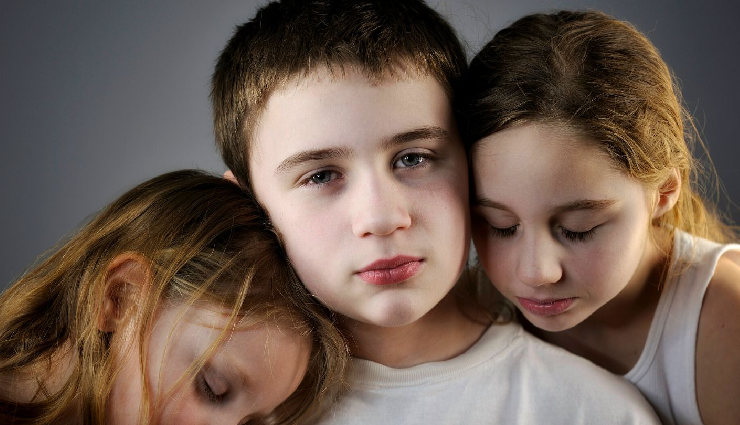- Home›
- Mates & Me›
- 8 Major Signs To Lookout For Oldest Child Syndrome
8 Major Signs To Lookout For Oldest Child Syndrome
By: Priyanka Maheshwari Tue, 02 Jan 2024 1:19:29

Are you familiar with the concept of Oldest Child Syndrome? According to Alfred Adler's Birth Order Theory, an individual's personality is shaped by their position in the family. Despite ongoing challenges to the theory, some characteristics associated with being the oldest, middle, or youngest child persist, and Oldest Child Syndrome is frequently discussed.
A child's personality development is significantly influenced by factors such as birth order, family dynamics, and a combination of various elements. This post delves into the understanding of Oldest Child Syndrome. Have you observed your eldest child unexpectedly displaying competitiveness with their younger siblings or expressing jealousy through tantrums? Are they exhibiting signs of dominance, perhaps bossing around their younger siblings? These behaviors may indicate the presence of Oldest Child Syndrome in your firstborn.
For many firstborns worldwide, the arrival of a sibling marks a natural transition in their lives. Going from being the sole focus of their parents' attention to sharing that love and attention with younger siblings can be a challenging adjustment. This shift may lead to stress and create a developmental crisis for many children, potentially serving as the underlying cause of sibling rivalry, jealousy, and a potentially traumatic experience for the eldest child.
While there are both advantages and disadvantages to being the oldest child, certain behaviors and personality traits can contribute to the manifestation of Oldest Child Syndrome.

# They might want to lead and dominate
When younger siblings enter the picture, firstborns often find themselves in a leadership role. Guiding and assisting their younger siblings, and demonstrating maturity, become integral aspects of their identity. However, if their leadership turns into dominance instead of guidance, it can be indicative of the presence of Oldest Child Syndrome.
# They may experience a constant drive for perfection
According to a 2008 study, firstborns often exhibit perfectionist tendencies and set higher standards for themselves, earning them the label of 'achievers.' While this trait is acceptable as long as they recognize their limits, it becomes problematic if they display aggression or depression when unable to achieve success or when their sibling outshines them.

# They might face parental expectations
Due to their persistent pursuit of perfection and a desire to please their parents, older children often bear a greater academic burden than their younger siblings. Parents anticipate their eldest child to serve as a role model in all aspects, particularly academically. The combination of parental pressure and the need for constant recognition can lead them into a zone where failure is difficult to accept, posing challenges in their later years.
# They may possess high self-esteem
In line with Adler's theory and recent studies, older children are found to harbor higher self-esteem and confidence. While beneficial for academic and professional success, this heightened self-esteem may not translate well in social settings. Excessive self-esteem can give rise to ego issues and resentment, potentially leading to a lack of acceptance by others if the individual lacks humility and gratitude.

# They might develop an unhealthy competitive attitude
When parents fail to address sibling rivalry and jealousy effectively during the arrival of a new sibling, the firstborn may harbor resentment toward their parents or younger sibling. This unresolved tension can foster unhealthy competition between siblings well into adulthood, serving as a hallmark of Oldest Child Syndrome.
# They might become obsessive
Assuming a protective role for younger siblings is commendable until it veers into the extreme, with the oldest child exerting excessive authority. If a child exhibits obsessive behavior in striving for perfection, it can be detrimental to both the older and younger siblings. The younger ones may become overly reliant on protection, while the oldest may lose themselves in an obsessive focus on their siblings.

# They may function as a second-parent to their siblings
When parents welcome a second child, they often encourage the firstborn to care for the younger sibling. While this parenting strategy can foster a positive sibling bond, some oldest children may develop parental feelings and responsibilities toward their younger siblings. This dynamic works well within boundaries, but if the attachment becomes excessive, it can be detrimental. The oldest child might expect the younger sibling to obey them as they would their parents.
# They might become excessively controlling
In their pursuit of perfection and achievements, firstborn children may develop a tendency to control every aspect of their environment, including their younger siblings. The inherent leadership qualities and the role as a second-parent figure can contribute to some oldest children becoming overly controlling.





